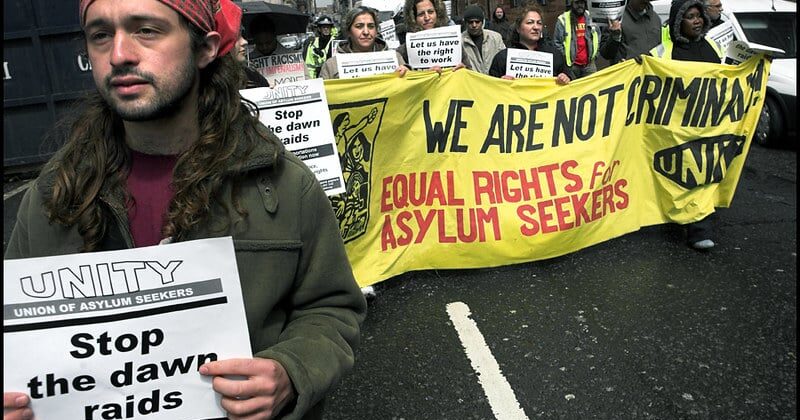

By Millie Collins
YEAR ON YEAR, more desperate migrants take the decision to make the dangerous Channel crossing and enter the UK, fleeing the horrors of climate disaster and war in search of a better life for themselves and their families. While the precise figures are impossible to estimate, as many die because of the perilous nature of the journey, the latest statistics suggest that 8,452 people have made the crossing successfully in 2021 so far, an increase on last year’s total of 8,417.
The government recently announced it would accept only 20,000 Afghan refugees over the next five years, despite the UK having been one of the main participants in an imperialist invasion and occupation that has devastated that country and laid the groundwork for the return of the Taliban.
The Nationalities and Borders Bill passed its second reading in the House of Commons on 20 July. While the government claims it is tackling ‘smuggling gangs’ and ensuring asylum seekers enter the country using ‘safe routes’, the bill instead makes it a criminal offence to claim asylum if they have not travelled directly from their country of origin. It also proposes housing asylum seekers in ‘accommodation centers’—camps—rather than in communities. Even if asylum is granted, it will be ‘temporary protection’, meaning they will have to continually reapply, giving them a precarious status indefinitely.
The government’s attacks on asylum seekers are part of an ongoing campaign against all types of migrant, scapegoating them for the economic failures of the Tory party and of capitalism. They have also, by pursuing a hard Brexit, made it more difficult for workers from other countries to migrate to Britain to work, and have blamed them for the rise in unemployment that is a result of their own economic policies.
Boris Johnson’s government is the latest in a long line of governments who have led attacks on the working class, leading to fewer jobs on worse pay. They have purposefully run down the NHS with the aim of privatising it and sold off housing and other services. They then blame migrants to divert anger from the real culprits: the bosses and the government.
The result of the persecution and marginalisation of migrants is that they are forced to work cheaply, or illegally, providing the bosses with a cut-price source of labour that undercuts other workers. To stop this, we need to have solidarity between workers of all backgrounds and nationalities, and demand higher pay and better conditions for all.
The Labour Party, the trade unions and all workers’ organisations should demand: